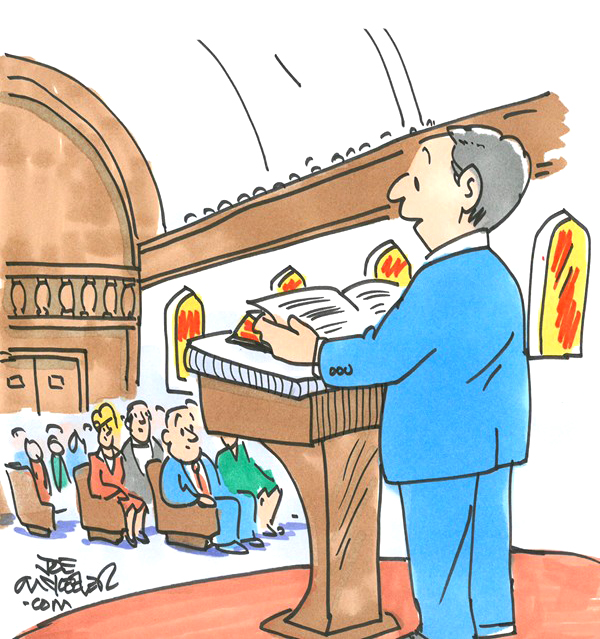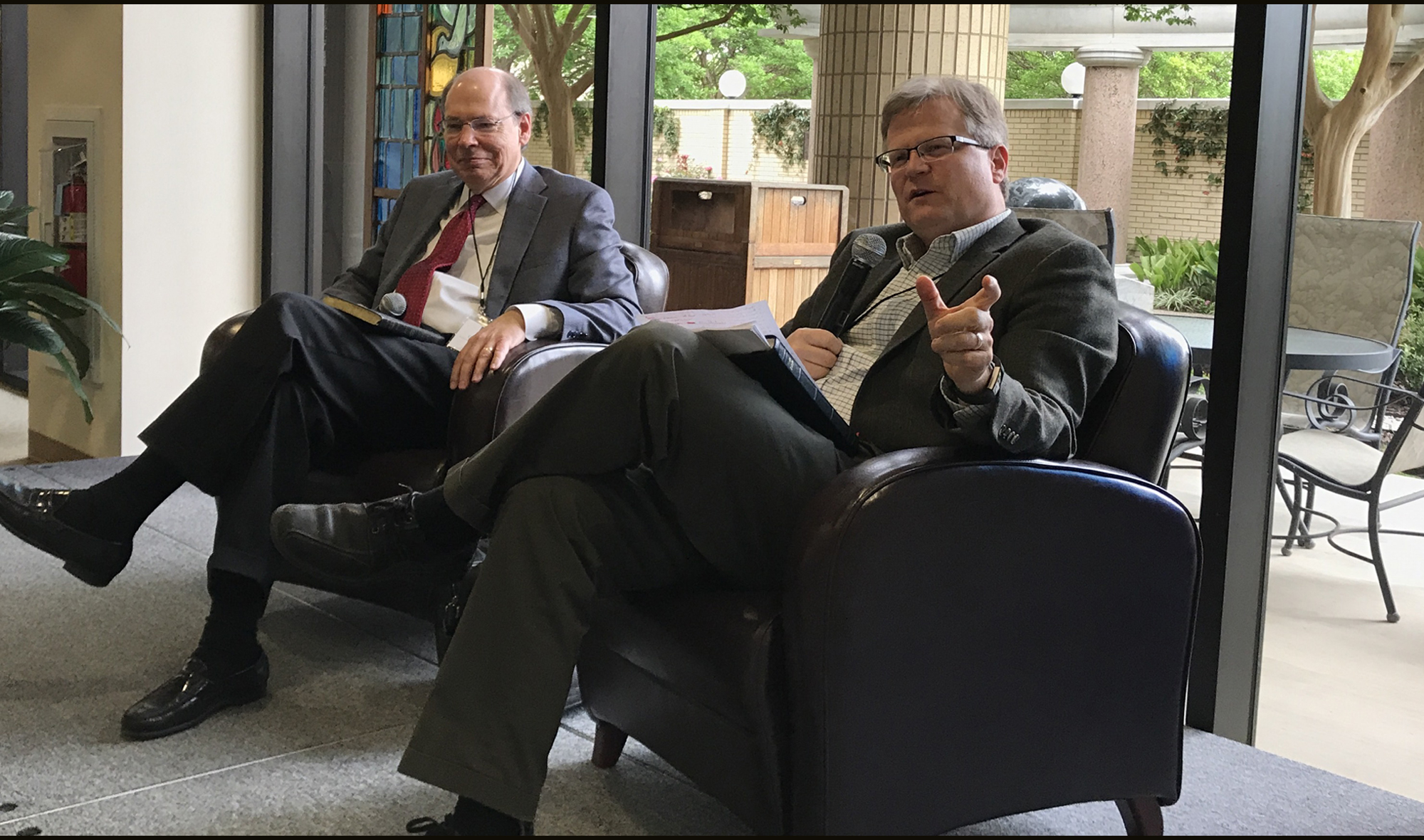
 FORT WORTH, Texas (BP) – What are we really doing when we gather for corporate worship each week?
FORT WORTH, Texas (BP) – What are we really doing when we gather for corporate worship each week?
For some today, the main purpose for which we gather is evangelism; every service is designed to bring in seekers and move them toward conversion. For others, the purpose of our gatherings is revival or fellowship. Others see the goal of our gatherings to express praise to the Lord, others want an emotional experience, and for some, the gathering is simply a duty to perform. So what does the Word of God identify as the central goal of our corporate gatherings as a church?
The Gospel builds a temple
The end of Ephesians 2 presents a beautiful picture of who we are as the church and what we do when we gather. Verse 18 says, “For through him we both have access in one Spirit to the Father.” This is the central message of the Gospel – we sinners who were far off now have access to the presence of God in one Spirit by grace through faith in the sacrificial atonement of Jesus Christ.
This is the Gospel, but don’t miss the essential connection in this passage between this Gospel message and the church’s worship. We sinners were far off, but now, in the Spirit, through Christ, we have access – that’s a term that specifically connotes entrance into the sanctuary of God’s presence. “So then,” verse 19, “you are no longer strangers and aliens [those prohibited from entering the sanctuary], but you are fellow citizens with the saints and members of the household of God.”
There’s a phrase that also describes the temple of God, and notice how Paul continues to build this imagery of the New Testament temple, the church: “built on the foundation of the apostles and prophets, Christ Jesus himself being the cornerstone, in whom the whole structure, being joined together, grows into a holy temple in the Lord. In him you also are being built together into a dwelling place for God by the Spirit.”
Do you see the essential connection between the Gospel and worship? Yes, the Gospel forgives us from the penalty of sin, but the emphasis in Ephesians 2 is on having access to the presence of God. The goal of the Gospel is to enable us to draw near to the presence of God, in His house, in His temple, where we are then able to fellowship with Him. That’s the nature of what we’re doing when we gather as the church for corporate worship.
In corporate worship, believers renew their vows to Christ
Now, this understanding of the purpose of corporate worship being communion with God in His temple, or better yet as His temple, the church, which is made possible only through Christ by the Spirit has important implications for what we do when we gather for corporate worship.
First, corporate worship is for believers. Only those who have access to God, those brought near through Christ, are members of the household of God and part of the temple. Only believers can commune with God. Therefore, the primary purpose of the corporate worship gathering is for believers to meet with God. This does not mean that we forbid unbelievers from being here; as Paul mentioned in 1 Corinthians 14:24–25, believers gathering to meet with God is profoundly evangelistic. But when unbelievers come, they come as observers, not as participants, and never do we design what takes place in the corporate church gatherings based on what unbelievers want any more than what took place in Israel’s temple was based on what uncircumcised pagans wanted. Corporate worship is for believers to meet with God.
Second, corporate worship is relational. We don’t simply go through a series of rituals as a duty. What we do when we gather is for the purpose of fostering our relationship with God. This is the emphasis of Ephesians 2; this whole passage that leads up to a description of God building a temple by His Spirit expresses those realities in relational terms. The Gospel that results in this temple is not simply a legal transaction or ticket to heaven, it is a reconciliation of our relationship with God. We have access to God through Christ, we are welcome in His presence, and so we gather to develop that relationship.
This leads to a third point: corporate worship is formational. Even as believers who have access to God through Christ, our relationship with God is not perfect; it is still growing and deepening. We must continually work to nurture a right relationship with God, allow His Word to correct us, and work toward sanctifying our responses toward Him. We certainly do this through personal Bible study and prayer, but one significant and necessary purpose of corporate worship is to help mature our relationship with God.
And more specifically, corporate worship renews us in the Gospel. Each week, we are renewing our covenant vows to the Lord, and in so doing, we are rekindling our relationship with Him and our commitment to Him, and He with us.
And then finally, this leads us to explicitly identify the goal of corporate worship: the goal of corporate worship is communion with God. Through the Gospel, we are God’s temple, His house, where we are enabled to meet with Him for fellowship. Our primary goal is not evangelism, though a Gospel-shaped service will be evangelistic. Our primary goal is not expression, though we certainly express toward God in worship. Our primary goal is not an emotional experience, though we will certainly feel things. Our primary goal is to nurture and cultivate a life of communion with God.
Scott Aniol, PhD, is associate professor and director of Doctoral Worship Studies at Southwestern Baptist Theological Seminary. He founded Religious Affections Ministries and has written several books, most recently Draw Near: The Heart of Communion with God.



















